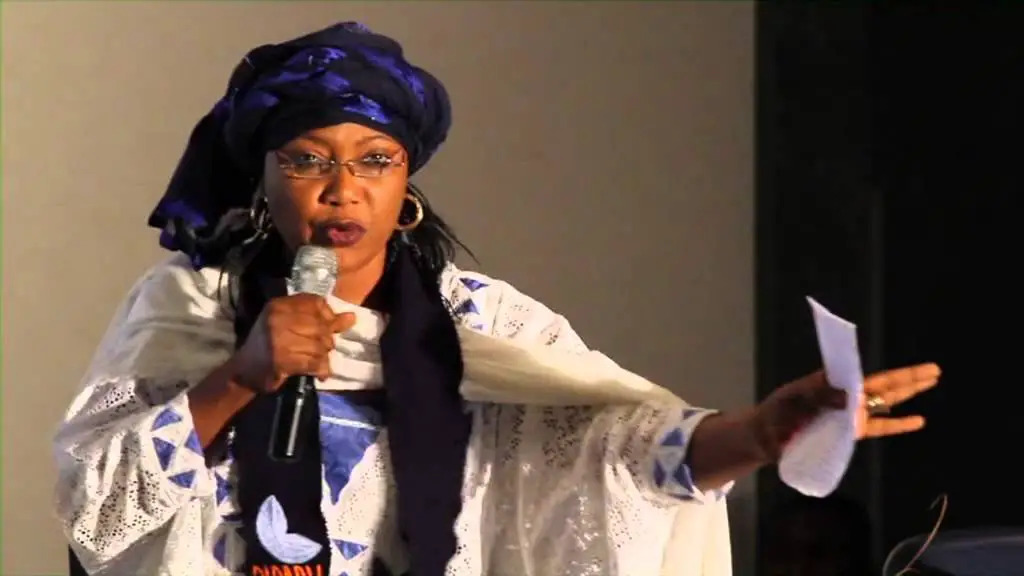Why does it seem as if Dr. Nonye Ayeni, Executive Director of Nigerian Export Promotion Council, is the only one that is privy to the $5.45 billion, or 7.2 metric tonnes, of non-oil exports that Nigeria reportedly achieved in 2024?
Dr. Ayeni failed to identify the items exported and the Nigerian companies that made the sales, and the companies and countries to which the exports were sold. All she did was the boast, “This is a clear indication that Nigeria is making significant progress.”
In the days of yore, when Nigeria had a more favourable balance of trade with other countries, even school pupils knew where the exported cocoa, rubber, oil palm, hide and skin, groundnut, coal and cotton originated from in Nigeria.
And apart from the sources of Nigeria’s export commodities being easily traceable, the tell-tale sign of a stronger naira clearly announced the positive run of Nigeria’s export trade. We are, therefore, compelled not to align with the Central Bank of Nigeria’s claim that the naira is becoming more stable. It is actually fluctuating.
Older Nigerians would recall with nostalgia when the naira (or the Nigerian pound) was at par with, or even stronger than, the American dollar. From the day military President Ibrahim Babangida introduced the Second-tier Foreign Exchange Market to auction the naira, it has been a virtually unstoppable downward slide for the beleaguered currency.
Things got even more slippery after President Bola Tinubu released the genie that kept the leash on the depreciation on the subsidised naira, whose real value was indeterminable. The naira depreciated drastically, and it has stayed weak, with brief improvements that have been brief and barely noticeable.
If the naira regained any strength in the last couple of months, it will be because an appreciable portion of the petroleum products that Nigerians consume are now being produced locally by Dangote Refinery and the barely noticeable and meagre efforts of the Nigerian National Petroleum Company Limited.
Even then, the expected significant impact of the reduction in the importation of these products is not so evident in the value of the naira that still remains one of the weakest currencies in Africa, and the world. Inflation, fuelled by the weak naira, is currently around 34 per cent.
If Nigeria’s non-oil export in just one year is up to $5.45 billion, state actors like the CBN Governor and the Minister of Finance and Co-ordinating Minister of the Economy, would not continue to harp on the need for Nigerian entrepreneurs to start producing goods for export.
Most of Nigeria’s strategic consumer goods, like foodstuffs, petroleum products, clothing and electronics, are imported at exceedingly expensive prices. Why? These imports are paid for with foreign currency that is very expensive to buy.
Whether the Organised Private Sector merely sells these expensive imported goods, or uses them as industrial raw materials, no one will be able to prevent them from reflecting, and recovering the costs in the prices of their goods.
They will be the first to complain about the cost of acquiring the foreign currency to finance their imports and the first to admit the dent it makes into their profits. The very high cost of foreign currency is proving to be a big disincentive to manufacturing efforts within the economy.
Removal of subsidy from petrol and electricity and its devastating effect on the cost of running business have robbed the export business of the advantage of a weak naira. Productive economies sometimes devalue their currencies to enable their exports to compete more favourably. The CBN is about to further compound the load of doing business in Nigeria with its proposed upward review of Automated Teller Machine transactions fees.
The argument that Nigeria probably has comparative advantage over other countries with regards to some mineral resources, agricultural produce and industrial manufactures may not be supported by the reality of high cost of production in Nigeria.
We are not too convinced that Nigeria has comparative advantage over much these days. But we think that the Ministry of Industries, Trade and Investment, the mother ministry of the Nigerian Export Promotion Council, can do a lot more to change the dismal report of Nigeria’s dwindling real sector.
The Minister, Dr. Jumoke Oduwole, needs to quickly rejig the industrial policy of the country, to enable the economy to achieve higher productivity.
As Adam Smith suggested that it is the excess agricultural produce and industrial manufactures of a nation that gets sold in the export market. If this is achieved, Dr. Ayeni’s claims will no longer sound like a phantom story.




 3 hours ago
22
3 hours ago
22








 English (US) ·
English (US) ·